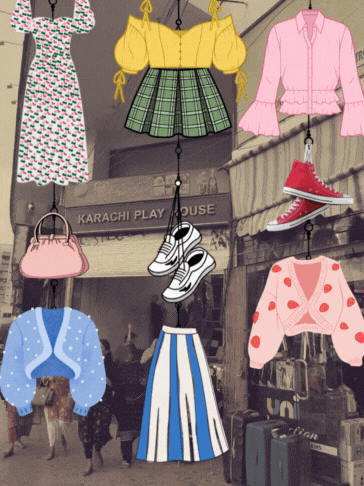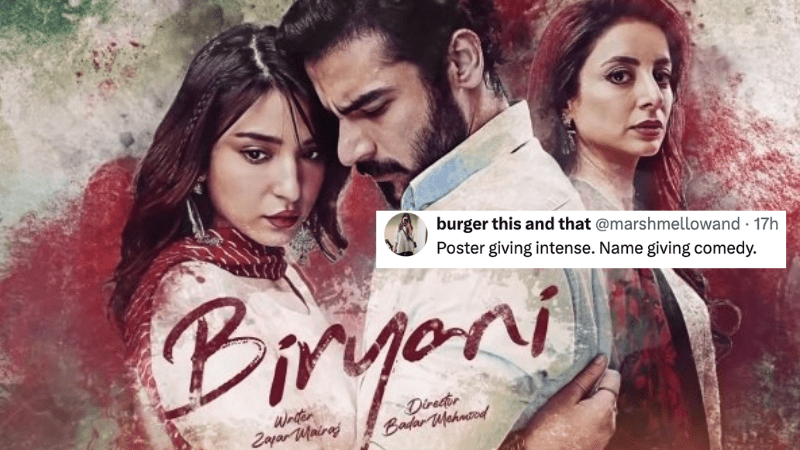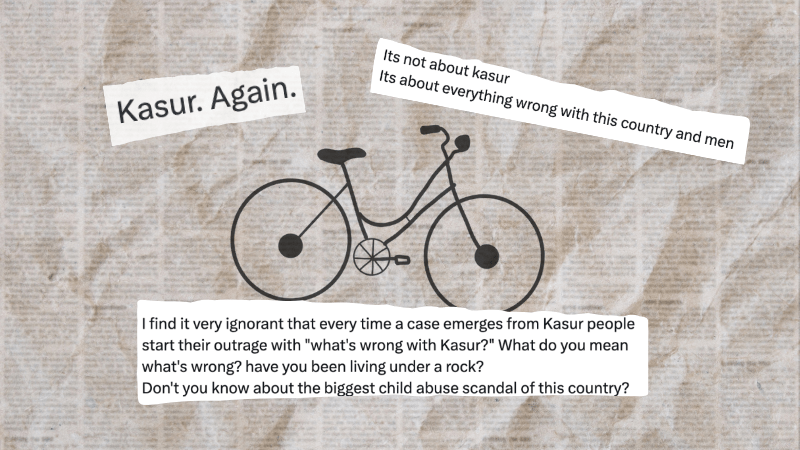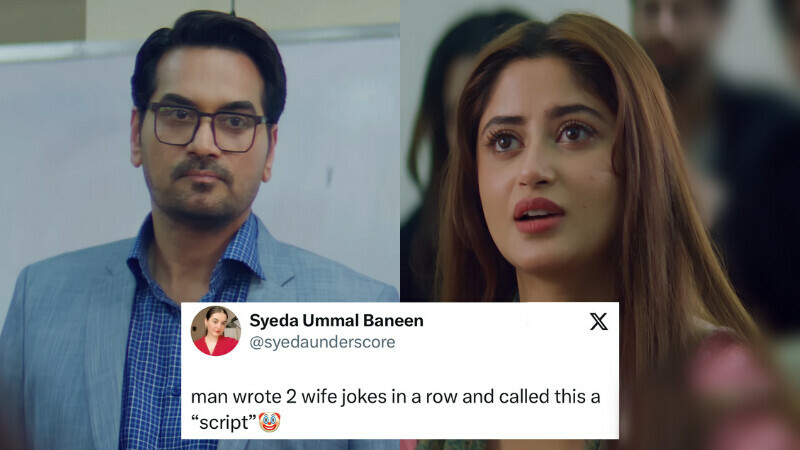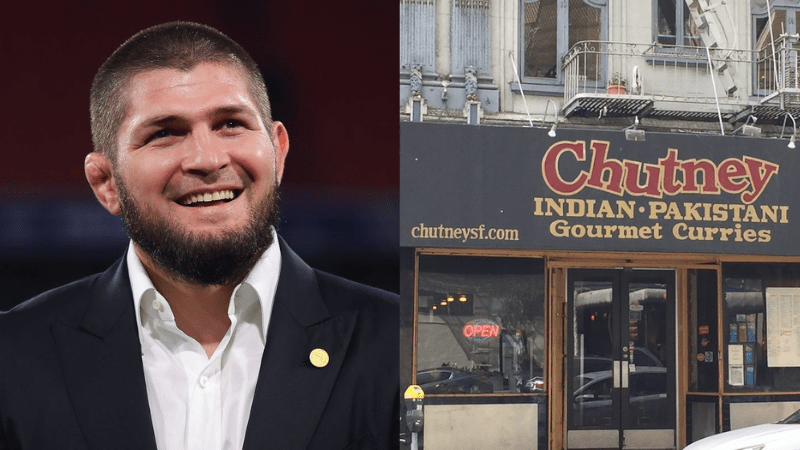We don't have any agenda or politics behind the books we promote: LLF founder Razi Ahmed
It's now time to turn our attention to a major cultural event that Lahore is hosting this week: the Lahore Literary Festival (LLF).
LLF is confirmed for a two-day run this weekend from February 24-25. This sixth edition of the festival will mark its return to the Alhamra Art Centre.
Sessions are expected to run the usual gamut from politics, history and current social issues to literature and performing arts, with the list of confirmed speakers ranging from local cultural figures like activist/urban theorist Arif Hasan, Urdu poet/scholar Iftikhar Husain Arif, and feminist poet Kishwar Naheed to foreign invitees like Reza Aslan, Riz Ahmed, American journalist/novelist David Ignatius, Iranian artist/curator Vali Mahlouji and Somali-British novelist Nadifa Mohamed.
The keynote address will be given by Pakistan's leading oncologist in New York, Dr Azra Raza, who is the Chan Soon-Shiong Professor of Medicine and Director of Myelodysplastic Syndrome (MDS) Center at Columbia University.
In the weeks prior, however, thoughts of LLF were marred by insensitive comments made on Twitter by LLF board member Fasih Ahmed, comments that prompted the hashtag #BoycottLLF to make the rounds. Have the festival's organisers managed to address this at all?
Images spoke to LLF founder Razi Ahmed to learn more about what to expect from LLF 2018.
Images: So you're back at the Alhamra this year...
Razi Ahmed: Yes, we're back at the Alhamra. Last year, we were at Faletti's (Hotel). We didn't get the NOC until 3am.
We had to relocate our opening ceremony to a private space, which was unfortunate because we had two incredible speakers — Peter Frankopan and Zehra Nigah — and had they had the opportunity to publicly engage with students and citizens, it would have really left an impact and hopefully shaped the ongoing discourse on matters that are of interest to all of us, but unfortunately get pigeonholed into small compartments in our own realm.
Because there's little that the electronic media is discussing which is healthy. There's a vicious breaking cycle momentum that they maintain around the year. So it's important for a festival like this to create room for dialogue, engagement, dissent, for ideas to be channelled and to have a healthy exchange between local and global speakers.

It's great to look inwards and celebrate what is our own, but it's also important while Pakistan is going through challenging circumstances, where we're considered to be a terrorist state, just to keep that momentum of engagement through civil society contacts going and for citizens to be empowered in shaping national dialogue on issues that matter to all of us.
Security is not just the shared privilege and prerogative of a certain few entitled people. The citizens also have a say and need to closely engage with parliamentarians and that's how democracies flourish.
Images: And as festival organiser, do you actively try to reach out to a broader audience than what an event like LLF would typically attract?
Razi Ahmed: We are working closely with CARE schools, one of the largest networks of government schools that have been rehabilitated in terms of curriculum in order to produce leaders who shine in civil society, medicine and other fields. It's a privilege to be working with underprivileged children and to be engaging them as volunteers and ushers.
We also have a wonderful partnership with Government College, which is of course the preeminent public university of Lahore, so their departments of history, English, political science are actively engaged with LLF.
We're also fortunate to work with Tahir Kamran and Asghar Nadeem Syed who have been faculty at Government College. We also have two Punjabi sessions held in collaboration with Oriental College of Punjab.
Images: Did you have any trouble with bringing on Indian authors this time?
Razi Ahmed: We were unfortunately a bit constrained to calling too many Indian authors for various reasons.
We extended invitations to three Indian authors. There's Anees Ashfaq, who's coming from Lucknow. He's been to Karachi before. Another is Neera Burra who's written a book on Ruchi Ram Sahni, an illustrious citizen of Lahore before 1947. So, again, it's part of popular history projects, reclaiming the sense of the past as something that is ongoing. You can't disassociate Lahore from 1947.

The third one is Shobhaa De, who is a frequent visitor of KLF and LLF. It would have been fantastic to have a lot more Indian writers but unfortunately, gauging from our past experiences, it's not always easy, what with the paperwork.
Images: LLF is often criticised for being too 'exclusive'. Apart from yourself, who weighs in on decisions about who to invite or the themes of the sessions?
Razi Ahmed: We have a board of trustees that have eminent citizens from Karachi and Lahore like Mr Hameed Haroon, Dr. Parvez Hassan, Mr Nayyar Ali Dada and Nusrat Jamil.
Apart from that we have an advisory board that spearheads the programming. We are constantly working back and forth via email and empowering people to pitch in ideas.
For example, the Neera Burra idea came from Nasreen Rehman, Aslam Nadeem Syed has been instrumental in the program as well, Dr Asma Qadri has taken the lead on the Punjabi sessions. So the idea is quite inclusive. But inclusiveness shouldn't be misconstrued. It's not a wide open road. Ideas have to be distilled and properly seen in perspective.
In terms of eventual curation, I take the lead. But even then, there are multiple rounds of due diligence. So the program goes through various rounds of scrutiny by Ahmed Rashid, myself, Mohsin Hamid, Salima Hashmi, Khalid Ahmed, Muneeza Shamsie, who is the one who advocated the session on Saleem Ahmed. If you look at the program a lot of it is derived from a communal, collective, consensual spirit.
"Many people, local or foreign speakers, have commented that this festival is markedly different. They seem to appreciate the thought put in it in terms of curation and ideas generated using books as vehicles and catalysts for more rounded, complex dialogues," says Razi.
A lot of authors, Sona Datta and Luke Thompson, approached us. They were very keen to make it to Lahore for the LLF. They've been hearing wonderful things from people who've been here before. Sometimes, we are approached by sponsors, in which case we are doubly more cognisant that there shouldn't be a conflict of interest.

You may notice about our festival that we are not aligned with any publishing houses or corporations. We don't have any agenda or politics behind the books we promote.
Many people, local or foreign speakers, have commented that this festival is markedly different; it's not like a slipshod, cold, unemotional series of book launches. They seem to (appreciate) the thought put in it in terms of curation and ideas generated using books as vehicles and catalysts for more rounded, complex dialogues.
Images: Do you feel any kind of resistance or fallout after the incident with Newsweek Pakistan editor Fasih Ahmed? Is work on LLF moving along smoothly?
Razi Ahmed: I think we have to see things in light of the interest and statement of the board of trustees of LLF, and how we attended to the matter within 24 hours.
We made our stance on the matter extremely clear and we put things on record. Those who have seen the festival have reposed faith in it.
This is an institution and it's there to thrive. It's not pegged to any one individual or sponsor. It's a festival for the city and its people and that shows - we are free and open to the public, like KLF or ILF. In Lahore, there was this missing space and that space has been greatly brought back to the living traditions of Lahore.
Images: Do you ever feel like you aren't given credit for bringing LLF to life?
Razi Ahmed: I don't want any kind of credit. I'm not seeking accolades. I'm doing it as a public good.
Images: And LLF is something that occupies your whole year?
Razi Ahmed: I work in a corporate capacity throughout the year. Apart from that, this is totally a vocation for me. I don't derive any benefits from it.
I believe in very strongly that if I can afford it, I'm not going to a) go to sponsors for money and then use that to support yourself and b) not going to use this opportunity, the platform, for putting myself as speaker or moderator. I can very easily do so - but I feel very strongly that if you're in charge and one of the curators, you don't want to be placing yourself in the programming.
Images: After the festival wraps up, do you have a chance to take stock of how it went or get feedback from people? Is there any way at all for the public to weigh in?
Razi Ahmed: I think the means of feedback can be improved; we're always open to suggestions.
A lot of people feel like they're part of the festival. They get back to us, they come up with ideas. Even if the idea doesn't materialise, at least it's been archived, it's all a work in progress. At our festival, we have a registration desk and we formally keep in touch with attendees.
We're also quite keen to have a town hall to engage stakeholders, students, etc to engage them in the promotion of new writing, translation.





